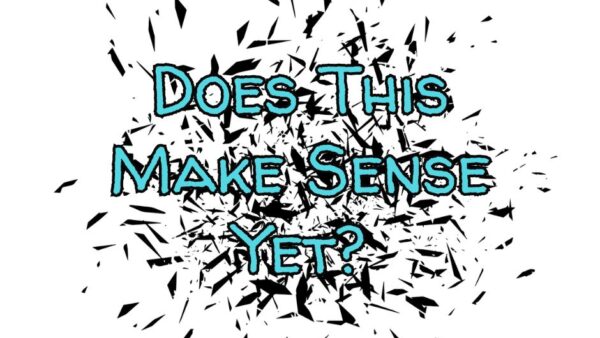One of the great things about being human is having fingers.
Seriously, we can do all kinds of cool things with them. And if you don’t fully appreciate how cool that is just ask someone who has either lost a digit or two, or has lost full functionality.
Fingers can also get us in trouble. I’m going to give vague examples. You can use your imagination for the specifics.
We can get in trouble when we put our fingers where they don’t belong.
We can get in trouble when we use our fingers in unwelcome gestures.
And who among us has never picked a nose in public?
Sorry about that last one. That was way too specific!
I’m thinking today, in this 7th installment in the art of healthy conversations (1, 2, 3, 4, 5, and 6), about a specific way that our fingers can get us in trouble from a distance.
I’m thinking about being keyboard warriors.
There is a certain reckless bravado that we can assume when we are typing that we would rarely assume in a face-to-face conversation. I say “rarely” instead of “never” because some of us have mastered the art of being jerks in person.
But that’s a discussion for another day.
I could give tons of examples of the the keyboard warrior approach, but you’ve likely seen plenty of them on social media or in letters to the editor, blogs, op-eds, and the like.
In this post, however, I’m going to limit my thoughts to what I believe to be some helpful principles that invite and enhance healthy dialogue among people who are willing to listen, learn, and engage for the sake of building better communities.
Principle #1 – Don’t type something from a distance that would get you punched in the nose in person. Do I really even need to explain this? It seems that some of us really like to stir the pot, poke the bear, open a can of worms—whatever metaphor works.
Ok, that’s the nature of public communication.
But some of us seem to enjoy getting personal about it. Name-calling, gaslighting, doxing, dog-whistling, virtue-signaling. Enough already!
Just. Don’t.
Principle #2 – Don’t invite a crowd into conversations that should be private. It’s really difficult to have a productive dialogue on social media because observers often want to join in and become participants. And if the dialogue starts to get tense, people start taking sides and it can easily degenerate into the kind of things that violate principle #1.
We need to be discerning about how we engage on public platforms. Some discussions are best conducted offline or, at the very least, in private messages. This allows us to stay on topic and control the “temperature” of the dialogue.
Principle #3 – Don’t try to communicate digitally what can be easily misinterpreted. In the days before social media (and sometimes still today), we might fire off an angry email. Have you ever sent one of those and immediately wished you could unsend it?
Or have you ever had either your email or text messages misinterpreted by the recipient and hurt feelings resulted?
Digital communication is convenient when we need to share information quickly. But it can’t communicate tone of voice, facial expression (emojis notwithstanding), and other nonverbal expressions.
Some things just need to be spoken through a human voice and heard through human ears so that human hearts can truly connect around common interests and needs.
Knowing when to say it and not type it is an amazing measure of maturity and awareness.
Until next week, by amazing, my friend.




